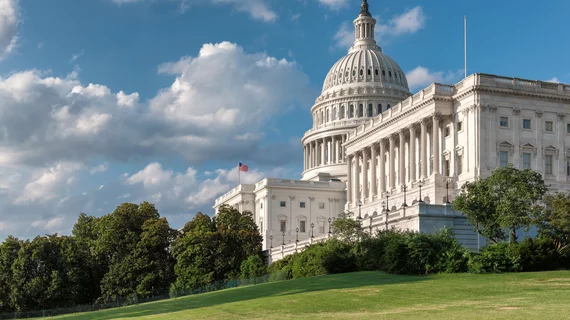$2T stimulus package includes healthcare help
The White House and Senate have reached a deal in a stimulus package worth about $2 trillion, with help coming to hospitals and healthcare providers dealing with the COVID-19 outbreak.
In addition to the big ticket items, including a major bailout for small businesses and corporations and a $1,200 check for individuals earning up to $75,000, the package included more than $130 billion for hospitals and healthcare providers on the front lines of the COVID-19 pandemic.
However, it is unclear how exactly the funding will be used to help the healthcare system. Sen. Minority Leader Chuck Schumer (D-NY) called the sum for hospitals a “Marshall Plan.”
“There is much more money for our hospitals, for our nurses and physicians, for our nursing homes, for our community health centers to do the job they need to do—over $130 billion,” Schumer said.
Health industry groups had been pushing Congress to include providers in the stimulus package. Namely, the American Academy of Family Physicians, American College of Physicians, American College of Surgeons, American Medical Association and Medical Group Management Association penned a joint letter to Congressional leaders asking for support to sustain physician practices and help ensure all healthcare workers have access to personal protective equipment.
“The legislation should support and sustain physicians and their practices during this unprecedented national emergency through tax relief, no-interest loans, direct payments, payment for virtual visits including phone calls, and other measures,” the March 20 letter reads.
Senate Majority Leader Mitch McConnel (R-KY) called the bill “emergency relief” instead of a stimulus package on March 25. The act is expected to be approved in the Senate, after which it will move to the House for approval. While the House is currently out, and a handful of members have been diagnosed with COVID-19, House Leader Nancy Pelosi (D-CA) is working on a solution to pass the bill through a voice vote with unanimous consent so members don’t have to return to Washington, D.C. President Trump is also expected to sign the bill.

